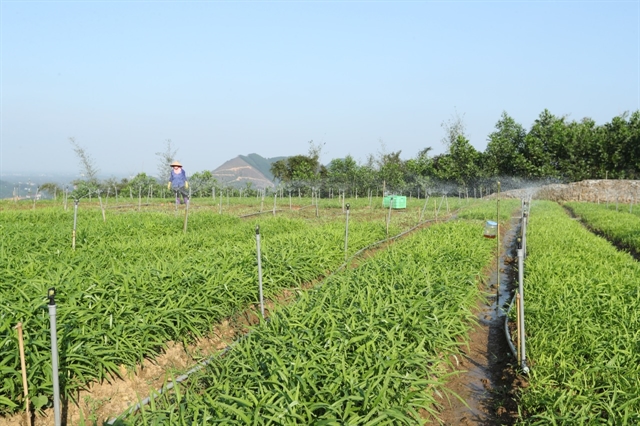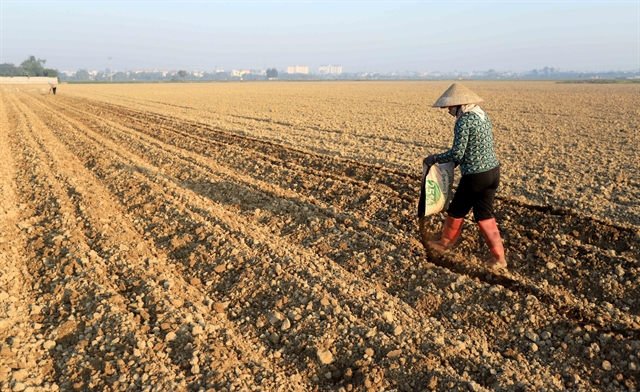 Society
Society

 |
| A field in Thái Bình Province. The Law on Land 2024 allows the concentration of agricultural land, opening significant opportunities for the development of modern and green agriculture. — VNA/VNS Photo Thế Duyệt |
HÀ NỘI — The 2024 Land Law, which took effect from August 1, is opening significant opportunities to attract investments in promoting the development of modern and green agriculture in Việt Nam.
The law allows the concentration of agricultural land through conversion, leasing, production cooperation and the accumulation of agricultural land through transfer, using it as an asset for capital contribution.
These regulations help address a major bottleneck which has long been hindering the development of large-scale land funds for large-scale and high-tech agricultural production.
Tuấn Ngọc Agricultural Cooperative in HCM City had been struggling with expanding the land it used for farming. The cooperative’s 4,000sq.m, which it used to cultivate vegetables, supplied around one tonne of high-tech produce every day, very modest compared to the demands of the southern city. The cooperative wanted to more than double the productive farming area to around 10,500sq.m but was unable to expand its current fields and had to develop growing areas in provinces such as Bình Dương, Đồng Nai and Ninh Thuận.
The cooperative’s director, Lân Tuấn Ngọc, said that because the farming areas could not be concentrated in one place, cultivation was difficult to manage and control in terms of the production process, resulting in higher production costs for high-tech vegetables.
When it is possible to concentrate agricultural lands, the production costs of high-tech agricultural cooperatives might be reduced by nearly half, Ngọc said.
Expert Lê Bá Chi Nhân, said that the new land law allows localities to plan land and reorganise production to ensure appropriateness to the local conditions and strengths, creating favourable conditions to promote One-Community-One-Product (OCOP) programme and enhance the regional links.
Hậu Giang, a purely agricultural province with over 85 per cent of land agricultural, is determined to focus on promoting the development of high-quality agriculture. The southern province has been actively calling for investments in agriculture, but the number of investors could be counted on one hand.
Director of Hậu Giang Province Department of Agriculture and Rural Development, Ngô Minh Long, said the very first requirement of any investor is a large amount of land.
The concentration of agricultural land is opening significant opportunities for the locallities in the Cửu Long (Mekong) River Delta region to develop agriculture in a sustainable way, Long said.
Specifically, this is creating favourable conditions for enterprises to participate in the project of developing one million hectares of high-quality low-emission rice, in line with promoting green growth in the region by 2030.
Director of Phước Thành IV Trading – Production Company, Nguyễn Thành Phước, said that the accumulation of agricultural land allows enterprises to scale up production, apply modern technology to increase productivity and efficiency, all the while reducing costs.
The crucial thing is that with land across a larger area, companies and enterprises will no longer be hesitant to invest in high-tech agriculture and new models such as organic and low-emission farming, he added.
Currently, many fields are being abandoned because farmers are not cultivating them effectively, while equally they are not confident in leasing them to enterprises, Nguyễn Văn Phụng, former Deputy Director of the Tax Policy Department under the Ministry of Finance said.
He stressed that local authorities play an important role in tackling this issue and promoting the efficient use of land. — VNS




